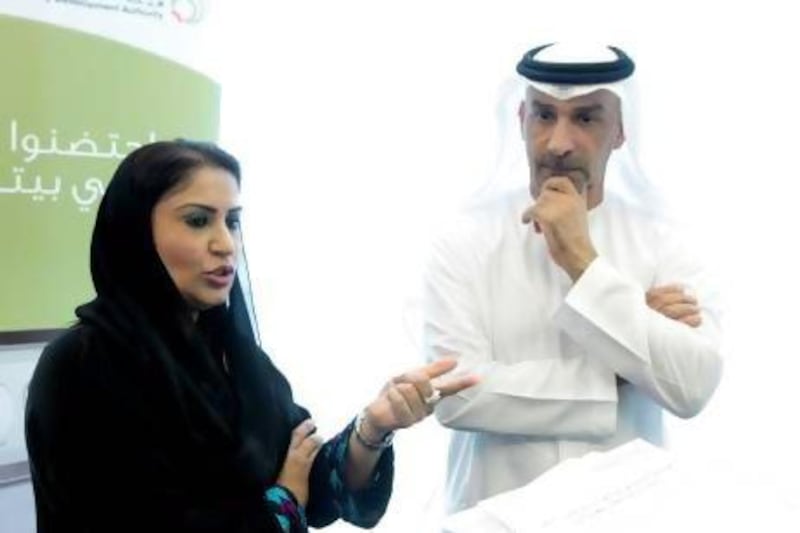DUBAI // Abandoned children will be cared for by professional foster mothers in family environments as a part of changes to the emirate's surrogate-parenting system.
And welfare authorities are calling for de-facto foster parents caring for children without telling the Government to come forward.
Under the new system, groups of up to six children will be looked after by a paid foster mother in settings as close as possible to those of a normal Emirati family.
The children will stay in these homes for as long as is needed, until permanent surrogate families can be found for them.
One family has already been placed together.
"Embrace", announced yesterday by the Community Development Authority, aims to provide more natural upbringings.
"We want to bring these children up in a natural family atmosphere, we want to teach them Islamic Emirati values and we want them to become Emirati nationals with an active role in society," said Khaled Al Kamda, director general of CDA.
Adoption is prohibited under Sharia Law but couples are encouraged to foster abandoned children as guardians.
Any child proven to have been abandoned is given citizenship.
"The main target is to move the children from this alternative family to a permanent family," said Badria Al Shamsi, in charge of overseeing alternative families for CDA.
"But if for any reason any child cannot find a surrogate family, this alternative family should play that role for as long as needed."
Since 1995, 300 children have been permanently placed in Emirati homes in Dubai, but every year another 15 to 20 children are abandoned, the CDA estimates.
The CDA says Embrace will improve health care for the children, and provide psychological, social, recreational and educational support.
Until recently they were cared for by Latifa Hospital until permanent homes were found.
It also hopes the system will simplify the process of finding permanent surrogate families and address gaps in the previous system.
The authority has discovered three cases in which families decided to care for abandoned children without notifying the Government.
"We would like to call on people who have been raising and helping children without notifying [authorities] to contact us and we will provide all necessary help to legalise the status of these children," said Ms Al Shamsi.
"We are doing this to protect the children and secure their rights."
In raising awareness about the fostering process the authority hopes more Emiratis in Dubai will consider offering permanent homes to children abandoned in their home emirate, rather than approaching authorities in Abu Dhabi and Sharjah.
Last year a federal law established a standard procedure of care for abandoned children, detailing their rights, outlining who is eligible to care for them and regulating the process of placing them with permanent surrogate families.
With this as a guide, the authority has set criteria for families wishing to give a home to an abandoned child.
Families must be Muslim, Emirati, living in the UAE, and both parents should be above 25. Single mothers must be above 30.
The family should also be financially able to support the child. Its members must earn at least Dh10,300 to take care of one child, with this figure increasing gradually for extra children.
Parents wishing to provide a permanent home for the children must demonstrate they are socially and psychologically prepared as well as being free from infectious disease or psychological and mental disorders.
The CDA will supervise a first meeting between the child and its prospective permanent family before drawing up a transition plan.
Children will then be placed with a family for a trial six-month period before they are placed with the family permanently.
The authority will carry out follow-up visits to ensure the welfare of children and the suitability of the surrogate family.
wissa@thenational.ae






